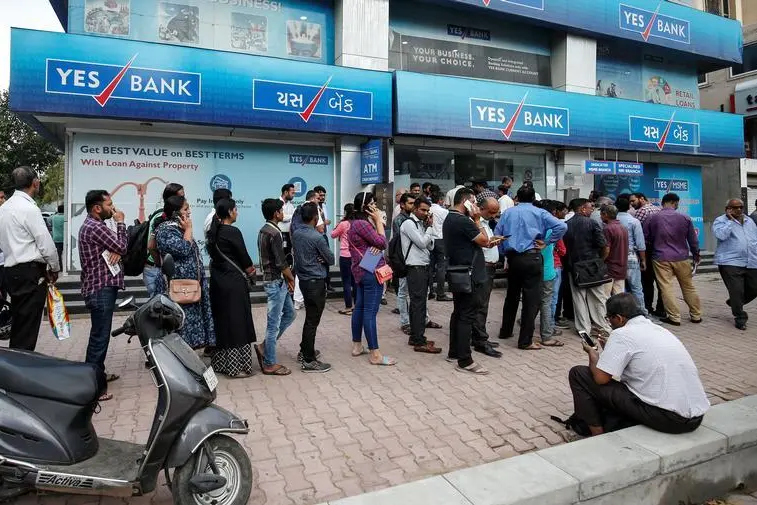PHOTO
BENGALURU/MUMBAI - Shares in Indian banks slumped to a more than 13-month low on Monday as the crisis at Yes Bank Ltd spooked investors and sparked concerns about the broader sector.
"The main contagion effect would be on the depositor base of private sector banks," Macquarie analyst Suresh Ganapathy said in a note to clients on Monday.
Noting the collapse of Yes Bank comes close on the heels of a string of other collapses, Ganapathy said it was shaking "depositor confidence in the financial system."
Yes Bank, weighed down by an increasing pile of bad debt, had struggled for months to raise the capital it needs to stay above regulatory requirements, without any success.
The Reserve Bank of India (RBI) took control of Yes Bank last Thursday, imposing limits on withdrawals to protect investors and saying it would work on a revival plan. Yes Bank's shares plummetted 56% the following day, leading to a rush by depositors to withdraw funds from the bank.
The Indian government has prodded the country's largest bank, state-run lender State Bank of India, to step into the breach and lead the planned rescue of Yes Bank, a measure some said might not be enough to stem sector-wide panic.
"Given the rapid build-up of fear-psychosis regarding Yes Bank, we think the investment by SBI in no way guarantees that there will be no deposit-run on Yes Bank once the moratorium is lifted," banking analysts at research firm Nirmal Bang said.
The Nifty banking index sunk more than 4% early on Monday, hitting its lowest levels since January 2019, as investors fretted about the health of the sector.
The fallout also stung some shadow banks, or so-called non-banking finance companies (NBFCs).
Shadow lender Indiabulls Housing Finance said on Sunday that Yes Bank owed it 6.62 billion rupees ($89.5 million) that it had invested in Yes Bank debt, sending shares in Indiabulls down 13% Monday morning.
Small private banks were also hit hard. Shares in lenders RBL Bank Ltd and IndusInd Bank Ltd fell 9.7% and 6.7%, respectively.
"This is no longer a capital problem now; it has now snowballed into depositor confidence issue and that is a far more serious issue," said Ganapathy.
($1 = 73.9950 Indian rupees)
(Reporting by Nivedita Bhattacharjee and Savio Shetty; Editing by Euan Rocha) ((Nivedita.Bhattacharjee@thomsonreuters.com; Mobile: +91 9920455129; Office: +918067491310;))





















